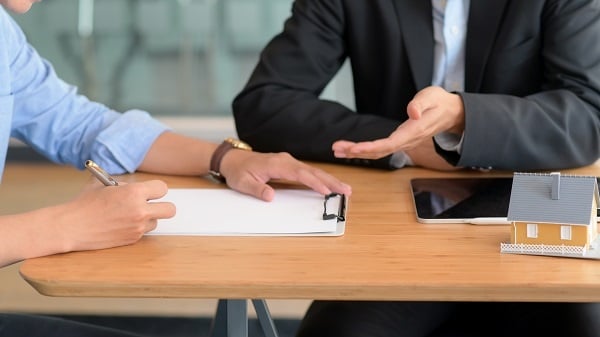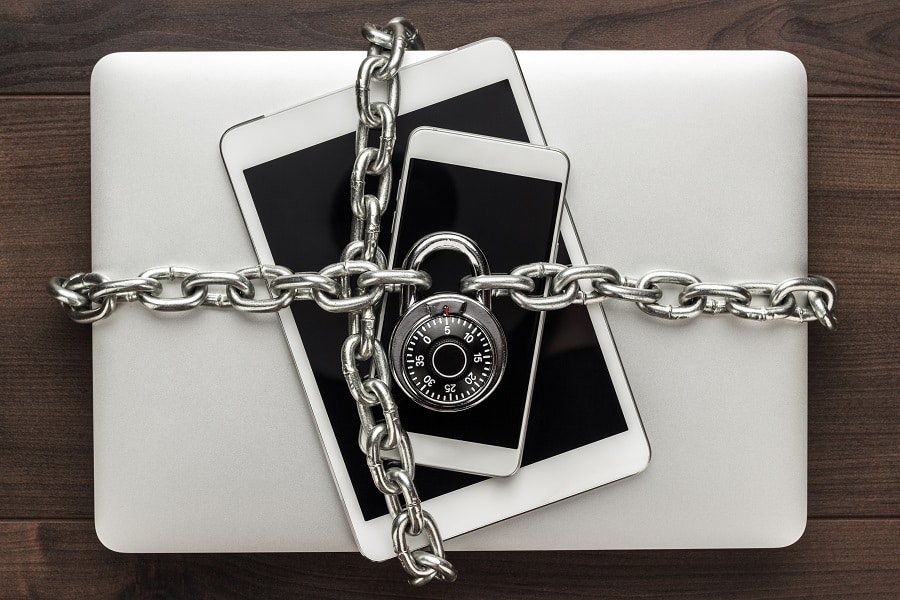The world is getting smaller and smaller with the powerful weapon known as the ‘Internet.’ Even though getting things at ease is the norm of the 21st century, there is a considerable drawback. People take advantage of hardworking, rich, and those who want to climb the ladder of success. Yes, they are called frauds or scammers, aiming to devastate your life and the lives of the innocents who have been fooled. As the world gets smaller, people tend to ensure that their identity is on the internet to recognize who they are. In the process, they generate a digital footprint on the internet.
You might wonder, that this is being done every day, how is this a threat to us? The internet is powerful but at the same vulnerable; that being said, your profile on the internet like social media, net banking, credit cards, or places where you fill in your details is at high risk. As the name suggests, identity theft is when a scammer or fraudulent tends to steal your personal information like your social security number, name, phone number, or email id and impersonate you for evil gain like money fraud. Don’t be alarmed, as there are ways to prevent being the victims of identity theft. These are the ways that will aid you to prevent identity theft.
Contents
- 1 Creating A Stronger Password
- 2 A way To Freeze And Unfreeze Your Credit Card (Not Recommending A Refrigerator)
- 3 Be Your Social Security Number Watchdog
- 4 Don’t Get Phished Out
- 5 Beware Of Your Surrounding
- 6 Invest In A Shredder Or Make Use Of Your Fireplace
- 7 Use Of VPN
- 8 Use Trusted Networks Only
- 9 Mobile Phone Security
- 10 Making Your Social Media Accounts Private
- 11 Credit Card Reports
- 12 Monitor Your Financial Statements
- 13 Use Of Digital Wallets
- 14 Safe Box – Paradise For Thieves
- 15 Keep Things Digital
- 16 Security Patches And Software Updates
- 17 Be An Introvert When It Comes To Personal Information
- 18 Use Different Email ID’s
- 19 Signing Up For Bank Alerts
- 20 Keep Your Credit Scores Minimal
- 21 Conclusion
Creating A Stronger Password

Passwords are the key to unlocking your world, your workspace, your financial records, and so much more. We tend to think about passwords that are logical to remember them wisely and effectively when we need them. For instance, you would choose your passwords like your pet’s name along with a birthdate or a phone number. You might have noticed that few networking sites or online banking have a system to determine the password’s strength. When you set your password as supposed ‘cat2712’, it will classify it as a weak password. Make your passwords strong, use special characters like @, #, $, %, and try to use numbers and characters (both capital and small letters), and make sure the length is more than nine places. When you set a stronger password that is not even closely related to your likes and dislikes, the probability of getting hacked is lowered, keeping your identity safe.
A way To Freeze And Unfreeze Your Credit Card (Not Recommending A Refrigerator)

A credit freeze helps you freeze your credit card, if and when required. You can freeze and unfreeze with ease. Why is there a need to freeze your credit card? When you freeze your Card, you as well as scammers, do not get access to your credit reports. Now, how would you benefit from it? When your credit card is not in use, like for loans or down payments, you should freeze your account so that it can prevent thieves from taking loans, and credits in your name.
Freezing your Card avoids security breaches, your personal information is locked. In this way, you will benefit from the feature. You can unfreeze your account by a single phone call to the credit bureau. The well-known credit card bureaus in the US are Equifax, TransUnion, Innovis, National Consumer Telecom, and Experian. The process of freezing and unfreezing your Card is completely free. Make fair use of it.
Be Your Social Security Number Watchdog

The one thing that you should be possessive about the most is your social security number. This is true, as your name is for humans to identify it, while your social security number is for the internet to identify you. Thus, in conclusion, your social security number is a part of your identity. Whenever someone asks for your social security number on the phone, become an interrogator and question the need for it and how they would protect it. Secondly, photocopies of important documents might tend to land up in the trash but before doing so tear the document into pieces making sure your social security number is covered up. Make sure you carry your social security number safely and be its watchdog.
Don’t Get Phished Out

Emails are an efficient way to communicate, especially for adults. All your work information, and financial updates are right in your inbox; all you need to do is have a quick read. Scammers or hackers send in an email that looks legit, except that the attachments contain a Trojan virus; clicking it can be malicious and should be avoided. Hence, to prevent this, make sure you check out the background information and use internet security services.
Beware Of Your Surrounding

It happens so that people around you tend to pick minor details about you. For instance, when you keep your screen looking like a pattern lock, imagine a person gazing at your phone without you being aware of it. When you draw the pattern, the person might get a hold of your password and make your private information vulnerable. Another example is when you are in a long queue at the supermarket’s billing counter, your pin might be viewed by another person when you pay by Card. Thus, to avoid this be cautious about your surroundings, and while dialing pins, make sure your other hand is covering over it.
Invest In A Shredder Or Make Use Of Your Fireplace

Necessary documentation that ends up in the garbage might contain sensitive information. The trash is easily accessible literally by anyone. Your data might get into the hands of an evil-doer, leaving you at risk. To avoid this, throw the papers in the fireplace and make sure it gets burnt out well, or shred every bit of the hard copies. The latter is preferable as it is a greener option.
Use Of VPN

Have you heard about digitally safe tunnels that make sure you have privacy? Virtual Private Networks are a safer option while browsing. This will make sure you don’t download unnecessary cookies. It will also help you keep your identity a secret while on the internet. Your connections are secure, just like the president’s telephone.
Use Trusted Networks Only

When you want to wire money, make purchases online or do net banking, make sure your device is connected to a trusted network. You should avoid making online payments while connected to a public network as there is a higher risk involved in your information getting leaked.
Mobile Phone Security

Your mobile phone is your precious commodity. You never leave it out of sight. This is because your mobile is a key to accessing your social bubble. To prevent leaks:
- Ensure a screen lock on your mobile phone.
- Prevent it from getting robbed by holding it tight and using earphones while speaking on the call, as thieves lift it when you hold your phone on your ears while on a call.
- Ensure every app has a password and use tracking services so that even if your cell phone gets robbed, you can easily track it.
- Avoid using the browser on your phone for net banking; instead, use a mobile banking app.
Making Your Social Media Accounts Private

These days, it’s easier to take a screenshot of someone else’s display picture. This display picture is then used to create a fake account, posing as you and doing evil deeds. To avoid this, you can use the feature of changing your account from public and private; this will ensure only those in your social bubble to view your profile. In this way, scammers or frauds will find it difficult to get access to your posts.
Credit Card Reports

Freezing your credit card is a good option, as mentioned earlier, but when you freeze your Card is something you need to check out. You should make sure that you are updated with the credit card reports. Cross-check for any frauds and forbearing accounts and see that they are reported adequately.
Monitor Your Financial Statements

While reviewing your financial statements, make sure you are familiar with and recognize each and every transaction. This will help you get your swipe history, and abnormalities in the transactions, and cross-check the locations you did the purchases, keeping you updated and well-informed. If you do not identify some statements, make sure you report it to the bank and demand the information as consumers have a right to it.
Use Of Digital Wallets

Digital wallets have become an ongoing trend since the beginning of the cashless revolution—the need for private credit cards has been sufficed with digital wallets. You can safely carry your information on your mobile device and secure transactions preventing a breach in data.
Safe Box – Paradise For Thieves

Imagine this, you receive all your mail in your mailbox, containing mail like credit card bills, electric bill, or other utility bills. These consider sufficient information about you and can be exploited by thieves. You can avoid this by ensuring your mail gets delivered to a nearby post office.
Furthermore, you can prevent it by installing a United States Postal Services-approved mailbox. Suppose you wouldn’t prefer the option mentioned above. In that case, you can always make sure of your mailbox’s safety by installing modernized locks, ensuring that you check the mailbox daily and when on vacation, make sure your trusted advisories (friends and neighbors) get hold of it before the information hunters.
Keep Things Digital

While there are plenty of ways to keep your digital data safe, preventing data breaches on physical hardcopies is limited. Therefore, you should prefer going paperless and getting your bills straight on your mobile phone rather than a paper bill, which can create havoc when lost.
Security Patches And Software Updates

The digital world is changing rapidly. To make sure you are ahead in the race, keep your software updated with the latest security patches, as outdated software can be prone to breaches. The security patches are updated as the older version is at risk; this ensures your private data remains private. A couple of years ago, the Windows OS had a security breach, and WannaCry created havoc by infecting several computers worldwide. Thus, to address the issues and prevent them from happening, security patches must be updated frequently.
Be An Introvert When It Comes To Personal Information

While meeting some stranger and starting a conversation, you might tend to reveal much more than the desired amount. If you are loud enough, assuming by the adrenaline rush of meeting a new person, you might tend to leak out your information to people around you. Beware while giving your personal information to anyone and only provide it whenever and wherever needed.
Use Different Email ID’s

It sounds fishy at first, but this has a considerable advantage. Might sites tend to ask you for your email id and signup so that you can view the site to gain information. As this cannot be bypassed, you should generate two email ids, one for personal use and banking. While doing so, you are at minimal risk of getting phished, and your data is secured.
Signing Up For Bank Alerts

Though financial institutions charge a small fee, SMS or email alerts can prove beneficial. Getting live updates about your transactions can help you detect abnormalities and can keep your money secured.
Keep Your Credit Scores Minimal

Maintaining a low profile can sometimes help you stay safe. This can be implied to your credit scores as well. Keeping a lower score can prevent you from being a target of identity thieves as they tend to fetch bigger fish. Thus, ensure your credit scores are moderate and not too high.
Conclusion
Thus, you do not need to be Enola Holmes to keep your privacy safe, but simple hacks can save you in the long run. Your identity and data are of great value; make sure you keep them safe like your precious stuff. Remember, the internet and businesses depend on your data.


